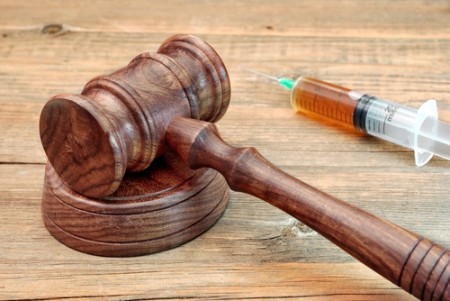US conducts first federal execution since 2003 after Supreme Court vacates injunction

Image from Shutterstock.com.
Federal inmate Daniel Lewis Lee died by lethal injection on Tuesday morning in the first federal execution since 2003.
Lee was executed in a penitentiary in Indiana after the U.S. Supreme Court vacated an injunction in a 5-4 decision, report the Washington Post, the New York Times, Bloomberg Law and the Indianapolis Star.
Lee’s last words were, “You’re killing an innocence man.” In a statement, he said the court system had ignored DNA evidence and he had no responsibility for the deaths of an 8-year-old girl and her mother and stepfather.
Lee died two to three minutes after the execution drug was administered, according to the Indianapolis Star. His lips moved as if he were blowing bubbles, but he didn’t appear to be suffering, the newspaper reported.
In a per curiam opinion, the Supreme Court majority said Lee and three other federal inmates seeking the injunction had not made a showing that justified last-minute intervention.
The inmates objected to the federal government’s plans to use the single drug pentobarbital sodium on the ground that it could cause them to suffer respiratory distress called “flash pulmonary edema.” The government offered competing testimony that if it does occur, it happens after the inmate has died or is fully insensate.
The court said pentobarbital sodium has been used to carry out more than 100 executions without incident, and it has been “repeatedly invoked by prisoners as a less painful and risky alternative to the lethal injection protocols of other jurisdictions.”
Justices Stephen G. Breyer and Sonia Sotomayor wrote dissents. Breyer’s dissent was joined by Justice Ruth Bader Ginsburg, while Sotomayor’s dissent was joined by Justices Ginsburg and Elena Kagan.
Breyer once again called for the Supreme Court to consider whether the death penalty violates the Constitution. Sotomayor said the court’s action “inflicts the most irreparable of harms without the deliberation such an action warrants.”
The Supreme Court refused to hear a separate challenge to the federal lethal injection procedure last month. At issue was whether use of a single drug conflicted with the Federal Death Penalty Act.
Write a letter to the editor, share a story tip or update, or report an error.


